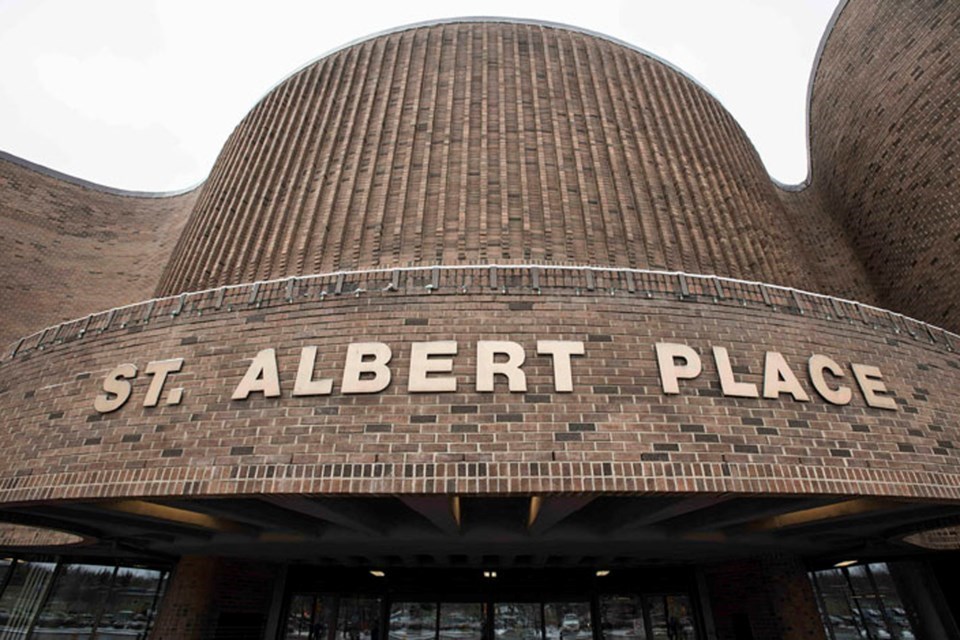Residents suggest cuts to the transit system, policing, recreation facilities, and more to fend off a looming 5.5 per cent property tax increase, according to a city survey seeking feedback on the proposed 2024 budget.
Besides the 5.5 per cent property tax increase, the city's proposed budget for next year also comes with a 7.2 per cent increase to the monthly utility fees charged to property owners.
Just 119 residents filled out the city's survey asking for budget feedback, despite the survey being open for three weeks.
The survey had 19 questions, most of which asked respondents to write out responses, and the results were published on Nov. 14
In response to a question about which city services residents felt should be reduced or not provided whatsoever, the Gazette found the most common answers were community amenities such as Servus Place or Fountain Park Pool; public transit; community development and services; environmental stewardship; and policing.
Despite the survey asking for written responses, among those who suggested cuts be made to recreation facilities, the only reasoning provided was St. Albert “can no longer afford” them, and hours should be reduced to save money.
Many respondents who suggested cuts should be made to public transit services cited seeing empty buses as a reason to reduce services. “Buses seem to run around town almost empty,” one person said, while another suggested the transit department needs “a complete overhaul.”
Those who suggested cuts to policing as a way to reduce city spending commonly cited a low crime rate as a reason.
“There's no crime here, we could cut the number of cops in half and no one would even notice,” one respondent said.
“Eliminate RCMP and replace with our (sic) own police service or join in a contract with [the Edmonton Police Service] or a provincial police force to provide better service,” another respondent wrote.
Although at least 60 respondents suggested cuts to services, some respondents left the question blank and others said they didn't want to see any services be reduced.
“All of the services mentioned are important to me and should only be reduced if absolutely necessary,” wrote one resident.
“None of these service areas can realistically be reduced without compromising safety or quality of life,” another respondent said.
Feedback on city's use of debt
Another survey question gauged whether respondents were in favour of the city using debt to finance major infrastructure projects.
Many respondents said they thought debt was a necessary tool to fund critical projects, but quite a few of those same respondents also said the city must use caution when taking on debt.
“Debt is a tool that should be used; however, that debt must be taken out with careful consideration of the benefit of the project and how it will help to pay back said debt,” said one respondent.
“Sometimes debt is required, though it's never ideal,” wrote another resident.
On the other hand, quite a few respondents also said debt shouldn't be used to fund projects whatsoever.
“If the city believes infrastructure is needed, then it should have the political courage to charge taxpayers for it over a short term, not pass the debt on to future generations,” a respondent wrote.
“No thanks. If we can't fund it then we can't have it,” another response reads.
Similarly to the previous question, a few residents didn't provide an answer or said they weren't sure.
Council-specific feedback
One of the survey's final questions asked residents if they had any specific feedback for the mayor and council.
While many respondents used the opportunity to reiterate their answers to previous questions, quite a few respondents issued a plea to keep affordability in mind.
“Please don't raise the costs for citizens any further,” one response said. “I use my child tax credit to pay for our property taxes.”
“If you raise this rate again, you risk making [St. Albert] unaffordable for us to continue to live here.”
Another resident wrote Albertans throughout the province haven't had wage increases in line with inflation in recent years, and a property tax increase would be another thing to overcome financially.
“The priority should be ensuring life is affordable for residents of St. Albert,” a resident wrote.
The survey results can be read in full on the city's Cultivate the Conversation platform.
Council is scheduled to begin budget deliberations on Nov. 27.




